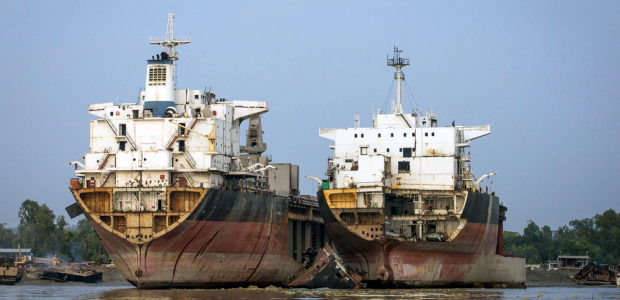Under the treaty, ships to be sent for recycling are required to carry an inventory of hazardous materials, specific to each ship. Ship recycling yards are required to provide a “Ship Recycling Plan” specifying the manner in which each ship will be recycled, depending on its particulars and its inventory.
The Netherlands recently became the 8th country to become a party to the Hong Kong Convention for the Safe and Environmentally Sound Recycling of Ships, the International Maritime Organization’s (IMO) treaty for safe and environmentally sound ship recycling.
The Convention covers the design, construction, operation, and maintenance of ships and preparation for ship recycling in order to facilitate safe recycling.
Under the treaty, ships to be sent for recycling are required to carry an inventory of hazardous materials, specific to each ship. Ship recycling yards are required to provide a “Ship Recycling Plan” specifying the manner in which each ship will be recycled, depending on its particulars and its inventory.
Dick Brus, Directorate for Maritime Affairs of the Netherlands, met IMO Secretary-General Kitack Lim at IMO Headquarters in London on 20-February-2019 to deposit the instrument of acceptance.

IMO Secretary General Kitack Lim and Dick Brus of The Netherlands meet at IMO in London. Photo Credit: IMO
Adopted in May 2009, the Convention will enter into force 24 months after ratification by 15 states representing 40% of world merchant shipping by gross tonnage, combined maximum annual ship recycling volume not less than 3% of their combined tonnage. Its aim is to ensure that ships, when being recycled after reaching the end of their operational lives, pose no unnecessary risk to human health, safety, or the environment.
The Convention has been designed to try to improve the health and safety of current ship breaking practices. Ship breaking is considered to be “amongst the most dangerous of occupations, with unacceptably high levels of fatalities, injuries and work-related diseases by the International Labour Organization (ILO) as large ships are often beached and then dismantled by hand by workers with very little personal protective equipment (PPE). This is most common in Asia — with India, Bangladesh, China, and Pakistan holding the largest ship breaking yards.
